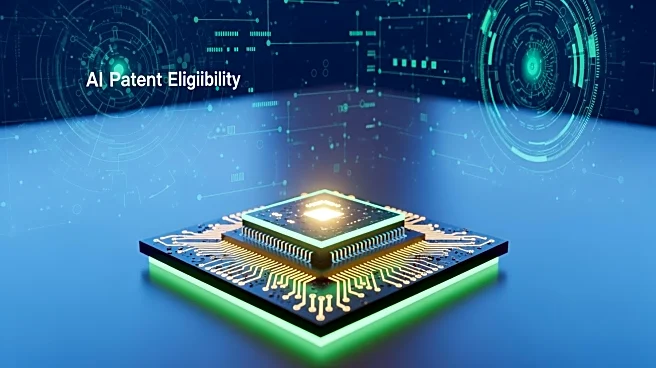What's Happening?
The U.S. Patent and Trademark Office Director, John Squires, has designated a decision regarding a Google DeepMind machine learning patent as precedential. This decision reverses an appeals board's legal grounds for declaring the patent invalid, emphasizing
that AI-related patents can qualify as patent eligible under Section 101 of the Patent Act. Although the patent was ultimately rejected for being obvious in light of prior inventions, Squires highlighted that other standards like non-obviousness and novelty should be used to evaluate patent protection. This move is seen as a push for pro-AI innovation by the director.
Why It's Important?
This decision is significant as it sets a precedent for how AI-related patents are evaluated in the U.S., potentially encouraging more innovation in the field of artificial intelligence. By recognizing AI patents as eligible under Section 101, the Patent Office is signaling support for technological advancements and providing clearer guidelines for inventors and companies working with AI. This could lead to increased investment and development in AI technologies, benefiting industries reliant on AI innovation. However, it also raises questions about the balance between encouraging innovation and ensuring patents are not granted too broadly.
















